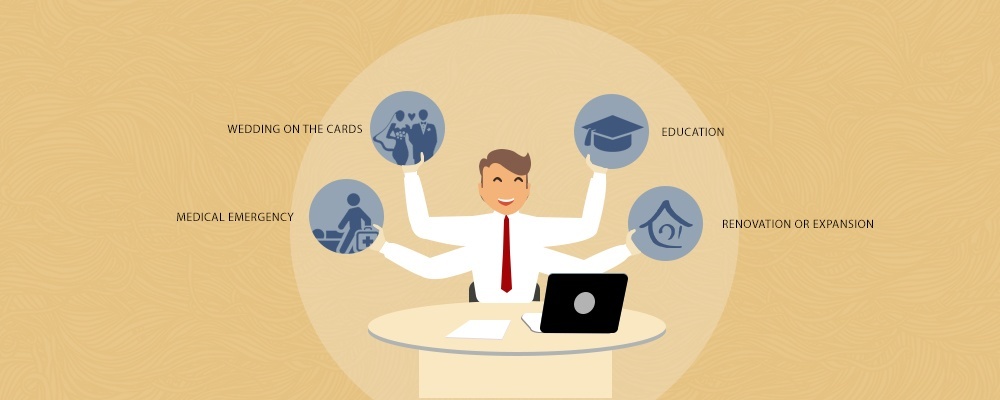Timing is everything when it comes to borrowing money. Whether you’re planning a home improvement project, consolidating debt, covering medical bills, or facing an unexpected emergency, knowing the best time to apply for a personal loan can help you save money and increase your chances of approval.
In this article, we break down the optimal times to apply, financial and seasonal factors to consider, and how timing can influence your loan terms, approval odds, and interest rates.
Why Timing Matters in Personal Loans
Applying for a personal loan isn’t just about need—it’s about strategy. The timing of your application can impact:
- Your approval rate
- The interest rate you’re offered
- Loan terms and conditions
- Your credit score’s readiness
- Economic factors affecting lender competition
Choosing the right moment can make borrowing more affordable and manageable.
1. Apply When Your Credit Score Is Strong
Your credit score is the single most important factor in determining your eligibility and loan terms. The higher your score, the better your chances of qualifying for:
- Lower interest rates
- Higher loan amounts
- More flexible repayment terms
When Is the Right Time?
- After you’ve paid down debts
- Once negative marks (like late payments) drop off
- After your credit report reflects a recent positive trend
Pro Tip: Before applying, check your credit score and report. Improve it if possible by paying down credit card balances or disputing errors. Even a small boost can save you hundreds in interest.
2. After a Raise, Promotion, or Steady Income Growth
Lenders assess your ability to repay the loan based on your income stability. When you’ve had a recent raise or started a higher-paying job, it can improve your debt-to-income (DTI) ratio, making you a more attractive borrower.
When Is the Right Time?
- After receiving a raise or job promotion
- After consistent freelance or self-employed income over several months
- Once you’ve been at your job for at least 6 months (for stability points)
Tip: Document your income changes clearly during the application process to strengthen your case.
3. During Lender Promotional Periods or Rate Discounts
Many online lenders, credit unions, and banks offer limited-time promotions such as:
- Lower interest rates
- Reduced or waived origination fees
- Pre-approval incentives
These often occur during seasonal promotions, like:
- End of year (Q4): Banks compete to meet annual targets
- Back-to-school season (August/September): Deals for parents and students
- Spring (March-May): Common time for home and life upgrades
Why This Matters:
Taking advantage of these periods can reduce your total borrowing cost significantly.
4. Before Making a Major Financial Move
If you plan to buy a home, finance a car, or make a large purchase that may require financing in the near future, it’s wise to space out your loan applications.
Best Timing Strategy:
- Apply before a major financial event, not after
- Ensure you have time to repay or stabilize your credit before your next financial move
Reminder: Every hard inquiry can impact your credit score. Group multiple personal loan inquiries within a 14–30 day window to limit the damage.
5. When Interest Rates Are Low
Economic conditions heavily influence lending rates. In times of low federal interest rates, personal loan APRs tend to drop, making it cheaper to borrow.
How to Track This:
- Monitor Federal Reserve announcements
- Watch lender newsletters or news for signs of rate cuts
- Lock in a rate when the market favors borrowers
Benefit: Locking in a fixed-rate loan when rates are low helps protect you against future increases.
6. After You’ve Shopped Around and Prequalified
Never rush into a personal loan. Take time to:
- Compare multiple lenders
- Use prequalification tools (which use a soft credit pull)
- Analyze APR, loan terms, fees, and monthly payments
Best Time to Apply?
After narrowing down your top offers and choosing the lender that offers the best balance of:
- Rate
- Fees
- Repayment flexibility
- Customer reviews
Helpful Tip: Prequalification is not a guarantee, but it’s the best way to assess what you might qualify for without harming your credit.
7. When You Have a Specific, Necessary Use for the Funds
Applying for a loan because it’s available isn’t wise. Apply when there’s a real, immediate, and justified need, such as:
- Consolidating high-interest debt
- Medical expenses
- Emergency home or car repairs
- A time-sensitive opportunity (like a business investment or wedding)
Why Timing It Matters:
Borrowing responsibly for a real purpose ensures you don’t overextend yourself and can commit to repayment confidently.
Times to Avoid Applying for a Personal Loan
While knowing the best time is helpful, it’s equally important to recognize when not to apply:
- When your credit score has recently dropped
- Right after a major loan application (like a mortgage)
- When you’re already struggling to meet current debt obligations
- When you’re unemployed or income is unstable
- During periods of high interest rates or economic uncertainty
Applying during these times could lead to higher interest rates, smaller loan offers, or a rejection that further hurts your credit score.
Conclusion: Timing Is a Borrower’s Best Friend
There is no one-size-fits-all answer to the best time to apply for a personal loan—but being strategic can lead to better outcomes. Apply when your credit is strong, income is stable, and lenders are offering competitive deals. Avoid applying out of panic or convenience, and always have a clear reason and repayment plan in place.
Your financial health, the lender’s offer, and the economy at large should all guide your timing. When you align these factors, you’ll not only secure a loan faster—you’ll secure a smarter, more affordable loan.
